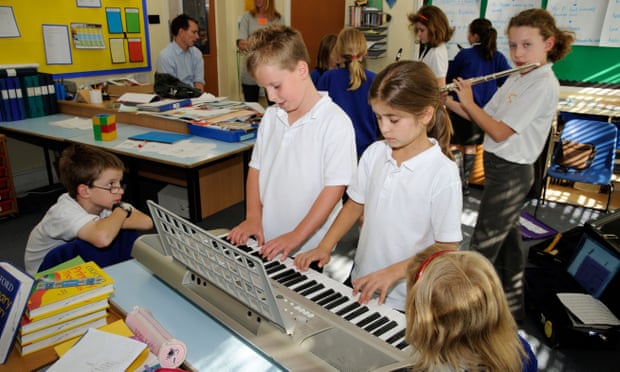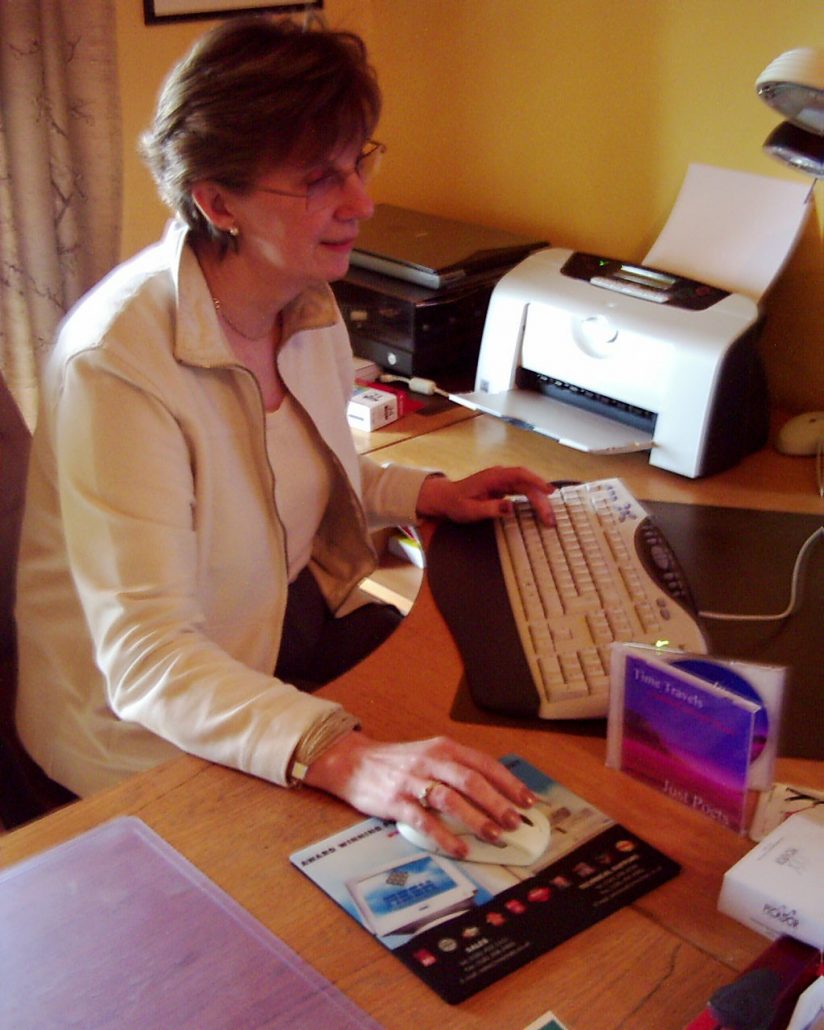TEACH TODAY´S CHILDREN WELL
TEACH TODAY´S CHILDREN WELL
by Norman Warwick

According to a recent report by Harriet Sherwood in The Guardian, Music education in UK schools devastated by pandemic, survey finds | Music | The Guardian music education in schools is facing an “unprecedented crisis” as a result of the Covid-19 pandemic, with singing, instrumental lessons, extracurricular activities and end-of-term concerts all badly hit, a new report says.
She asserts that there is ´genuine cause for alarm´ over the impact of the virus on music provision, and quotes from The Heart Of The School Is Missing report produced by the Incorporated Society of Musicians (ISM). ´Beyond the intrinsic value of studying music for its own sake, there is a plethora of evidence that studying music builds cultural knowledge, creative skills and improves children’s health, well-being and wider educational attainment.´
Having worked as a peripatetic creative writer in schools for more than twenty years, often accompanied by musicians, I find it incredible that such statements are not taken as self evident and still need to be repeated, and ever more stridently, even today.

Having seen the devastation caused by covid to our current generation of adult musicians, including practitioners, remember, of whatever is your particular preferred musical niche, we should be doing everything we can to ensure we produce the next generation wanting to deliver to the world to provide the solace and reflect the joy we need to return to normality.
Instead, The Guardian reports that ´more than two-thirds (68%) of primary school teachers and more than a third (39%) of secondary school teachers reported a reduction in music provision as a direct result of the pandemic in a survey carried out by the ISM at the beginning of this academic year.
Almost one in 10 primary and secondary schools are not teaching music as part of the curriculum at all. Some lessons “contained no practical music-making”, the report says.
Beyond even that Herriet Sherwood says the ISM report states that singing has ended in more than a third (38%) of primary schools, and instrumental lessons have ceased in almost a quarter (23%).
There are further damning statistics too. Extracurricular musical activities have been discontinued in nearly three-quarters (72%) of UK primaries and two-thirds (66%) of secondaries. Schools in Scotland, Wales and Northern Ireland have been hit harder than those in England.
In addition, more than half (53%) of primaries and almost two-thirds (63%) of secondaries that normally hold a festive concert at the end of the first term of the academic year will not do so this year
´We cannot (are not allowed to by government guidelines) sing, and the children are hugely disappointed when they ask to sing and we tell them no,´ one primary teacher told the ISM. Even the most simple of covid protocols reduce lesson times with teachers saying that due to staggered breaks/lunch and the need to constantly wash hands, the amount of time actually spent on learning or making music has been reduced.
A secondary teacher said: ´Honestly, it’s impossible to state how devastating this will be in the long run for music as a subject. There is no provision at all for instrumental lessons, ensemble projects, bigger inclusive performances or even classroom ensemble work. This will, of course, harm students emotionally and academically.´

My arts partner, Pam McKee, and I were on the books of Artists In Schools, a government funded agency of the early two thousands, that recruited appropriate artists and helped them develop workshops in their art form to complement the mainstream curriculum. For several years we worked in schools all over the North of England as part of an array of artists that included sculptors like Marjan Wouda, voice coaches like Beth Allen and song-writers like Tony Berry of The Houghton Weavers.
Although we were obviously keen proponents of the arts and the effect they could have on young people our road to Damascus moment came when we completed one particular series of workshops we had delivered to children in a deprived community, in association with the Spiral Dance group with which we shared a strong synergy. On completion of the course we had money left over from the funds granted and offered to return that to the providers, who in turn suggested we spend it wisely to further enhance what we had already accomplished.

It was decided to take the group of children to a performance of Matthew Bourne´s Swan Lake Ballet at the Lowry Theatre in Salford. Being honest, it had been a tough course to deliver with several of the children we worked with being fairly constantly, if not maliciously, disruptive and I had slight doubts about how these twenty or so youngsters in the 11-14 age bracket, most of whom had never been beyond Rochdale, might respond to the rarified atmosphere of what was then (and still is?) Manchester´s newest-build theatre.
The Lowry theatre management and staff proved to be wonderful hosts, taking the students on an access all areas tour of the theatre, and the young people, perhaps awe struck at the vastness and the lighting and overall plushness of the venue, were on great behaviour. Even the most mischievous little lad, who had constantly called me ´poetry bloke´ for the duration of the course leaned forward in his seat as the dancers came to the stage at the start of the performance and sat rapt by the event for next ninety minutes and at the end tears were rolling down his face, albeit over a beatific smile, so entranced had he been by the ´theatre´ of it all.
By the time our students came to offer our own ´street dance and rap´ review for parents and sponsors to show what we had achieved, three months later, he had become less the antagonist and more the artistic director and drew a fantastic show from his peer group.
We had been fortunate to have been working on that occasion with the hugely enlightened Falinge Park High School with their dedicated and hard-working staff. Being honest most schools we worked in shared that whole ethos of what benefits the arts and their local practitioners could bring to the school, although I couldn´t really tell you what makes a good teacher.
We, as visiting artists, whilst of course adhering to the particular protocols of each school, were not responsible for class discipline, even though we had our own standards and boundaries we tried to uphold. In fact being an artist in schools held its own peculiar difficulties, as the classes under the rule of the strictest, (but not necessarily the best) teachers were those who often found it the most difficult to be spontaneous in anything other than a mischievous manner. In some of the troubled schools we visited it was a brave teacher indeed who sought to encourage discussion and debate and free thinking vital to creativity, but invariably those who did so were rewarded by their pupils.

My former song-writing collaborator, Colin Lever, (left) worked for many years as a science teacher in Rochdale and led his classes by inspirational teaching.
Nevertheless he wrote recently in a piece for the Jersey Evening Post (he is now an educational consultant on the island) that ´índiscipline in a classroom has more to do with the teacher than the children´.
He suggested that teachers who lose control are sometimes guilty of weak planning and organisation, boring delivery and content, frequently resorting to (empty) threats of sanctions and of blaming everyone and/or everything other than themselves

The Children’s Commissioner of The Chanel Islands recently described one of John Le Fondre’s media, podium displays as being like a ‘head teacher giving everyone a telling off in an assembly’. Le Fondre was recently elected as Chief Minister of the government and Colin suggests that ´the role of Chief Minister is not that disimilar from that of a teacher trying to manage a class.´
The Chief does not yet seem comfortable in this role in front of the cameras. He is not a demonstrative person, (unlike Boris Johnson, says Colin) who suggests that seeing Le Fondre speaking can be like watching a struggling geography teacher, telling pupils about the creation of an oxbow lake.
´However,´ says Colin, ´if you compare his delivery during his vote of no confidence with that of his public addresses, he can speak with conviction.´
Colin then describes a scenario that was all too familiar to me when I was visiting schools.
‘If you don’t sit down, you will get a detention!’ The teacher threatens an unruly child. It has the desired effect, at first, but when uttered for the umpteenth time without action, the child recognises it as an empty threat and ignores the teacher. Compare that with; ‘If you don’t follow the advice, tighter restrictions may have to be put in place’.
Take the instruction on wearing masks, for example. In recent weeks we have had.
It is advisable to wear masks indoors- not enforced
It is recommended to wear masks indoors- not enforced
It is strongly recommended to wear masks indoors- not enforced
Currently, on Jersey, the wearing of masks indoors, in public places, is compulsory, but will fines be imposed in cases of non-compliance? Supporters describe the decision-making as ‘measured’, opponents call it ‘vacillation’.
On Jersey, ‘There will be no lockdown on the 23rd November’, has been followed by, ‘we may have to have a lock down before Christmas.’ ‘You must follow the guidance’. For the disobedient, such statements are vacuous, and the virus continues to be spread.
The failing class teacher will blame anything and anybody. ‘There is a lack of resources’ and/or, they ‘do not get enough support’. Compare this with; ‘we are following the science’ and ‘we all have to take responsibility’. In other words, blame everybody for the spread except me. What the ‘leader’ ends up with is a gang that is out of control, along with the spread of the virus.
In respect of planning and organisation for Covid-19, there is much in place. So how come the recent rise in cases is exponential? Like under-age smokers, looking for places to hide, the ‘naughties’ seek loopholes. For example, the track and trace team tend to text or phone. A first offence is met with a verbal warning. Factor in rising numbers and the chance of capture diminishes. For the rebellious teenager, and those chasing their lost youth, the risk is worth the reward, even if the sanction is eye-watering. And so, the virus continues to be spread.
If Jersey has a chief minister who is methodical and adept logically, why were sanctions not embedded in law earlier? Organisation should be pro-active, predicting eventualities and planning accordingly. The law threatens fines for those who ‘wilfully refuse’ to disperse but nothing for those who turn up and subsequently spread the disease? It’s all very much after the lord mayor’s show. As this second wave washes through the community, the Chief Minister will be aware of the increased probability of more hospitalisation, more suffering, and more deaths. The consequences this time around are avoidable, and they are his responsibility.
How does an accountant account for the unaccountable? There is a tyranny in numbers, especially when they do not add up, or worse, like a child with dyscalculia, they start to move around the page. Some problems defy logic or method.
There is a psychology to behaviour management and the best teachers use it to great effect. They are not disciplinarians, they know their charges, personalising the work to suit differing needs. In respect of covid-19, the altruistic will respond to the need to help and support others in the community. For the selfish, they require clear boundaries and a comprehension of what is in it for them. For example, You If you are faced with ‘no mask, no entry’ then you have a simple choice, comply, or stay away.
Empathy builds trust, which, in turn, dramatically reduces indiscipline. The teacher that stands behind the desk, distant and aloof, will struggle to command respect. They will be isolated, failing to control those they are responsible for.
Meanwhile, we are not currently delivering a comprehensive music curriculum in UK schools as schools become ever more fixated on mainstream curricula and ignore those signs pointing to Sidetracks or Detours and to where inspiration begins.





Leave a Reply
Want to join the discussion?Feel free to contribute!